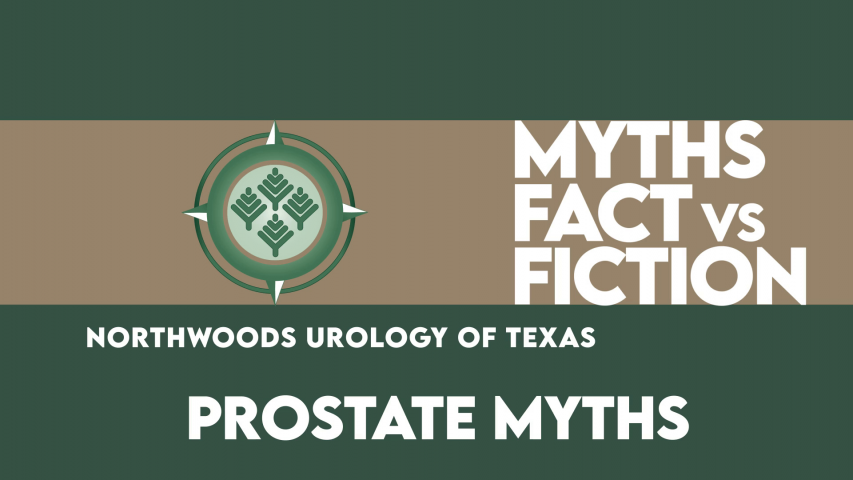Transcript of Video
Hello, I’m Dr. Ron Henry from Northwoods Urology of Texas. Today, we’re gonna talk about some of the myths that surround urology topics.
We hear sometimes, that men might only get prostate cancer if someone in their family has had prostate cancer. That’s actually really not true. Prostate cancer is the most common cancer in men over 50. And so I think any man that’s 50 plus needs to be screened on an annual basis for prostate cancer, with an exam and PSA blood test. However, patients that do have a family history of prostate cancer are actually at increased risk, and they should be followed closely as well.
Many patients feel like they couldn’t possibly have prostate cancer because they don’t have any symptoms. In fact, early prostate cancer has no symptoms. And most of the symptoms associated with men related to their prostate are due to prostatic enlargement or BPH and not prostate cancer. If a person has or has had prostate cancer, there’s often the feeling that their sex life is over. Most of the treatments for prostate cancer, however, may have some impact on sexual function, but we’re keenly aware of that. And we often use medication or surgical techniques to try to help maintain sexual function.
Having an enlarged prostate is part of aging. That is actually somewhat true in that, if you look at statistics regarding BPH or prostatic enlargement, there’s really a linear growth in symptoms in patients once they reach 50 and continuing on through the rest of their life. However, when somebody develops, symptoms may be quite variable. Sometimes men in their early 50s can have significant urinary symptoms, and another man may not have any particular problems until their late 70s or 80s.


